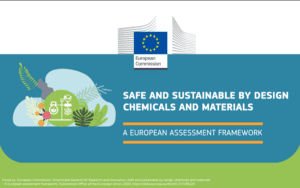On 10 September 2025, European Commission President Ursula von der Leyen delivered her annual State of the Union address, outlining priorities for Europe’s economy, security and global role.
Among the wide-ranging proposals, research and innovation emerged as a key driver of Europe’s strategic independence.
Von der Leyen stressed that Europe already has the foundations to thrive, from its single market to a strong research community, but warned of intense geopolitical and economic headwinds. Reducing dependencies, she argued, demands bold action in science, technology and clean industry.
A major announcement was the doubling of the Horizon Europe programme and the creation of a Competitiveness Fund to drive cutting-edge research. The Commission also pledged to cut administrative burdens and simplify funding rules, saving European companies billions each year.
Von der Leyen highlighted Europe’s need for tech sovereignty, unveiling a multi-billion-euro Scale-up Europe Fund to help high-potential start-ups in fields such as quantum technology, artificial intelligence and biotechnology grow without leaving Europe for foreign investment. She pointed to new initiatives like European AI Gigafactories, a Cloud and AI Development Act and a Quantum Sandbox to ensure the next generation of AI and quantum breakthroughs remains European.
Clean energy and the circular economy were given equal weight. Plans include a Battery Booster package to expand production for electric vehicles, an Industrial Accelerator Act for strategic technologies, and a “Made in Europe” criterion in public procurement to create lead markets for clean industrial products. Strengthened grid infrastructure and removal of energy bottlenecks will support affordable, secure energy for citizens and industry.
Throughout the address, von der Leyen tied these measures to Europe’s global role, noting that robust science and fair collaboration are key to sustainable international partnerships. For the chemical sciences, these commitments mean more funding opportunities, stronger incentives for innovation in sustainable chemistry, and policies designed to keep Europe at the forefront of clean technology.



